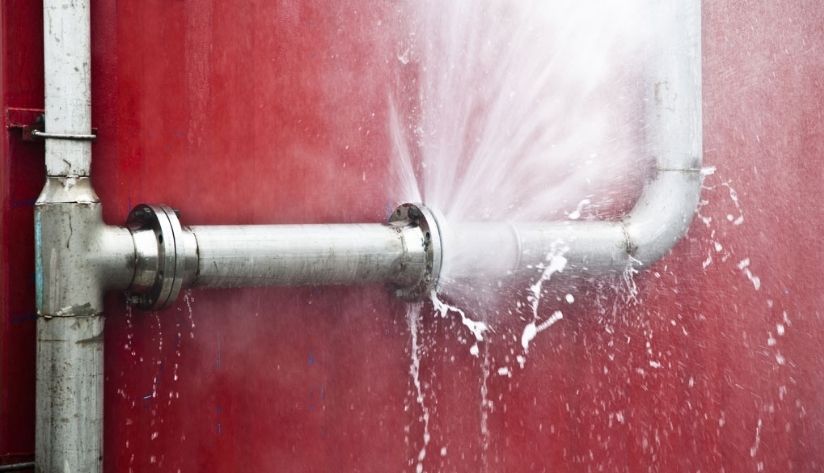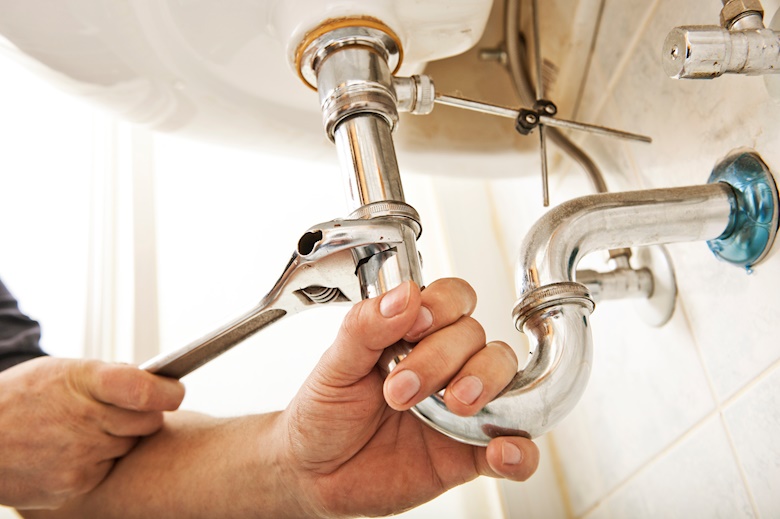The Top 5 Recurring Water Leak Factors
The Top 5 Recurring Water Leak Factors
Blog Article
Just about everyone will have their own individual opinion involving Common Causes of Water Leaks in the Home.

"Beware of little expenses. A tiny leakage will sink a fantastic ship." - Benjamin Franklin.
He couldn't have been a lot more appropriate because water leakages in our houses cause a waste of resources, increasing our water expenses. Although this rise could appear negligible at first, it can cause significant costs that can break your financial institution. Other than an increase in bills, water leaks also cause undesirable organic growth, architectural damages, and also electric threats.
If you have a water leakage isn't always simple due to being not able to see most of the pipework in your residence, figuring out. If you have had an increase in your water costs lately, observed water spots on walls and ceilings, smelt lousy smell, etc. You could want to consider asking for plumbing services to get it looked into.
There are numerous reasons for water leakages, and we have actually compiled the usual reasons listed below. Examine to see if you have had associated concerns in your home recently.
Clogged drains pipes
Food fragments, dust, and also oil can cause blocked drains pipes as well as block the flow of water in and out of your sink. If undealt with, raised pressure within the seamless gutters can finish and also cause an overflow up fracturing or bursting pipes. To avoid blocked drains pipes in your house, we encourage you to stay clear of pouring particles away and regular cleaning of sinks.
High water stress
You discovered your house water stress is more than common yet after that, why should you care? It runs out your control.
It would certainly be best if you cared because your average water stress should be 60 Psi (per square inch) and although your residence's plumbing system is made to hold up against 80 Psi. An increase in water pressure can place a stress on your residence pipes and also result in cracks, or worse, burst pipes. If you ever before see that your residence water pressure is more than usual, contact a professional about controling it.
Rust
As your pipework ages, it gets weaker and extra at risk to corrosion after the constant flow of water via them, which can eat away at pipelines as well as trigger fractures. A noticeable indicator of deterioration in your home plumbing system is staining and also although this might be hard to find as a result of a lot of pipelines hidden away. We encourage doing a frequent examination every few years and also alter pipelines once they are old to guarantee an audio plumbing system
Damaged pipe joints
Pipeline joints are the parts of our plumbing system where the pipes connect. It is essential to note that also though pipes are developed to withstand pressure and also last for a while, they weren't made to last for life; as a result, they would certainly deteriorate over time. A common indication of damaged pipe joints is extreme sound from faucets.
Damaged seals
One more source of water leaks in homes is broken seals of residence appliances that utilize water, e.g., a dishwashing machine. When such appliances are set up, seals are installed around water adapters for very easy passage of water via the device. Thus, a busted seal can create leak of water when being used.
With little or no understanding of plumbing, understanding your home's plumbing system adequate to take care of a few of these issues (without consequence) can be an inconvenience. Get in touch with plumbing professionals in Pittsburgh, Providence, Rochester, and also environ today, and also they'll make those problems vanish.
He couldn't have actually been much more ideal since water leakages in our homes result in a waste of sources, increasing our water costs. If you have had an increase in your water expenses lately, noticed water discolorations on ceilings and walls, scented poor odor, and so on. A boost in water pressure can place a strain on your residence pipes as well as lead to splits, or worse, burst pipes. An additional reason of water leaks in residences is broken seals of home appliances that use water, e.g., a dishwasher. When such home appliances are mounted, seals are installed around water ports for simple flow of water via the equipment.
5 TIPS IN DETECTING A WATER LEAK IN YOUR HOUSE
Water leaks can be hard to find in your home, yet they can be so common. We rely on water every day in our home, which is why a leak can cause big problems. By detecting them early, you can save money and further damage, getting the problem fixed as soon as possible. Here are 5 tips to help you detect a water leak in your home, so you can contact a plumber straight away and get the issue sorted.
Check your water meter
Many people underestimate the value of the water meter in their home. It can be one of the best ways to tell if you have a leak early on, so you can get on top of it before issues start arising. Start by turning off all the water in your home: taps, washing machine, dishwasher, etc. Now take a look at the meter – if it’s still changing with everything turned off, it’s likely you have a fast-flowing leak that you need to get on top of straight away. If nothing changes, then leave your meter for an hour or two and come back to it. Did it change in this time? It’s likely you have a slower leak, which isn’t as urgent but still handy to get fixed so it doesn’t become a bigger problem.
Keep an eye on your bill
Another good way to detect a leak in your home is by keeping an eye on your water bill. It helps if you have a past bill from the same period of time. You can compare like for like and determine whether your water usage has increased significantly. If it has, there may be a leak in your system that you haven’t picked up before. A professional plumber can check through all of your pipes and determine where it is coming from.
Look for damage
If you have a leak inside your home, you will notice damage over time. Take a look at your showers and bathtubs and note whether any of the tiles surrounding the area seem to be discoloured or damaged in any way. There may be water stains, mould or peeling material that has resulted from a build up of moisture over time. Make sure you take a look under sinks at the back of cupboards that don’t get accessed regularly. This is where damage can go unnoticed and build up over periods of time.

Do you appreciate reading up on Where to Find Water Leaks? Create a short review down the page. We will be pleased to listen to your ideas about this article. Hoping to see you back again in the future. Liked our article? Please share it. Help someone else discover it. Many thanks for taking the time to read it.
24/7 support awaits. Report this page